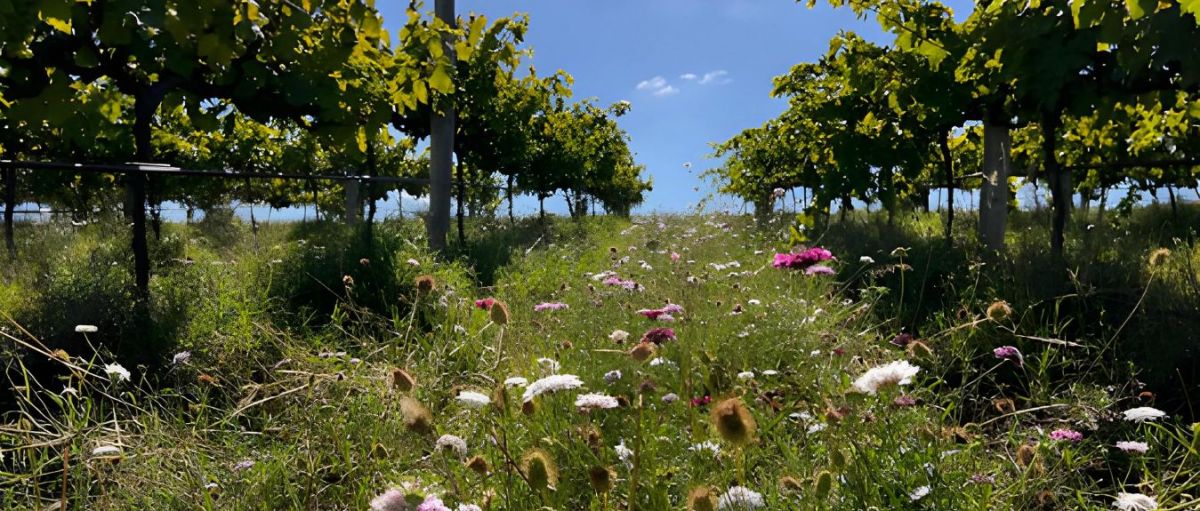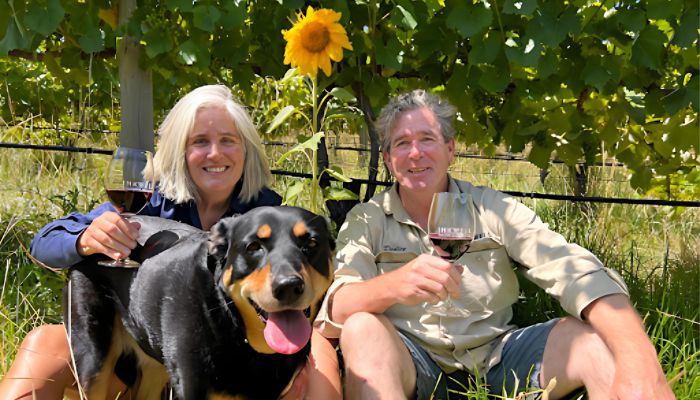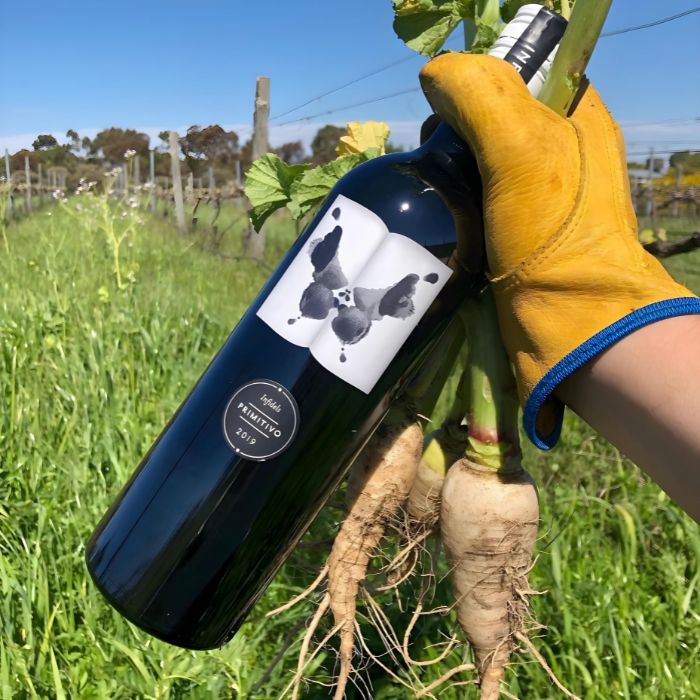Early Bird
Deadline
February 20, 2025
Judging
Date
July 28, 2025
Winners
Announcement
August 12, 2025

Regenerative viticulture is rapidly gaining traction as a holistic approach to wine production that focuses on enhancing ecosystem health, promoting biodiversity, and improving soil fertility. This sustainable farming practice goes beyond traditional organic and biodynamic methods by actively restoring and revitalizing vineyard ecosystems. Some organic, sustainable, and biodynamic growers may disagree, but there is little doubt in early 2024 that sustainable viticulture is rapidly gaining acceptance as the gold standard in holistic, eco-friendly wine production.
For sommeliers and the on-trade, the rise of regenerative viticulture presents an opportunity to showcase wines that not only taste exceptional but also reflect a commitment to sustainability and environmental stewardship. Certified regenerative wines offer sommeliers a unique selling point, allowing them to engage customers with the story behind the wine and its positive impact on the environment. By highlighting these wines on their menus, sommeliers can cater to growing consumer demand for sustainable products while supporting vineyards that prioritize biodiversity, soil health, and ecosystem resilience. As the awareness and appreciation for regenerative viticulture grows among sommeliers and consumers alike, it is likely to become a defining feature of the on-trade wine selection, setting a new standard for responsible wine consumption.
One of the new, key aspects of regenerative viticulture is certification, which serves as a guide for vineyard managers to comply with high environmental standards and communicate their commitment to sustainability to consumers. While certification is not mandatory, it offers several benefits, including improved practices over time, consumer trust, and access to new markets.
The Regenerative Viticulture Foundation (RVF) sees regeneration as a process rather than a destination and aims to inspire growers to start their journey towards regenerative farming without requiring third-party validation.
While the RVF does not mandate certification, it acknowledges the value that certification can offer. Certification can help vineyard managers comply with high environmental standards, inform consumers about the sustainability of their practices, and open up new markets for certified wines. However, certification can also be limiting, setting practices in stone and potentially stifling innovation.
Certification in regenerative viticulture is a complex landscape, with various schemes offering different standards and approaches. The Regenerative Viticulture Alliance, Land to Market Verified, and Regenerative Organic Certification are just a few of the certification options available to vineyard managers. Each scheme has its own set of standards and requirements, highlighting the need for vineyard managers to choose the one that best suits their goals and practices.

Source: RVF
Australia's Inkwell Wine, certified under the Regenerative Organic Certification (ROC) scheme, exemplifies the success of regenerative practices. Dudley Brown, the visionary behind Inkwell Wine, emphasizes the importance of diverse cover cropping in sequestering carbon, enhancing soil health, and increasing vine resilience. Dudley's experience highlights the transformative potential of regenerative viticulture, where previously barren sections of his vineyard began thriving after implementing regenerative practices.
In a recent RVF interview with Dudley Brown of Inkwell Wine, he shared insights into his journey and the lessons learned along the way. Obtaining their Silver Regenerative Organic Certification (ROC) in 2023, Inkwell Wine has become a beacon of success in the realm of regenerative viticulture.
Dudley's journey into regenerative practices was sparked by a transformative moment in his Shiraz vineyard, where a previously barren section began thriving after implementing cover crops. This experience highlighted the importance of soil health and biodiversity in vineyard management.
One of the key changes Dudley introduced was diverse cover cropping, which has not only sequestered carbon but also made the vines more resilient to pests, diseases, and extreme weather events. This practice has dramatically improved water retention and reduced soil temperatures, creating a more sustainable vineyard ecosystem.
When seeking support, Dudley emphasizes the importance of specialized knowledge and adaptation. He relies on various sources, including "deep organic" suppliers for nutrition and biology, researcher Chris Penfold for cover cropping, and authors like Gabe Brown and David Montgomery for broader insights.
One of the most cost-effective practices Dudley has implemented is increasing biodiversity by planting native trees and bushes. This has not only attracted diverse fauna and insects but has also helped eliminate flying pest problems naturally.
Dudley's top tip for aspiring regenerative viticulturists is to read extensively, be open to new ideas, and start with small-scale experiments before making significant changes. He also stresses the importance of gradual transition, advising to cut fertilizers and herbicides by one-third each year over three years.
Reflecting on his journey, Dudley encourages a younger version of himself to trust his instincts, measure everything possible, and observe crops closely. He emphasizes the need for continuous learning and adaptation in vineyard management.
Looking to the future, Dudley envisions his ideal vineyard enabling grazing to control summer grasses and incorporating organic nitrogen inputs year-round. This vision aligns with his goal of creating a vineyard that fosters diverse flora and fauna while minimizing environmental impact.

Image: interplanted radishes in Inkwell vineyards, Source - Inkwell Wines
In terms of disease control, Dudley emphasizes a holistic approach that focuses on improving plant resistance through nutrition and beneficial microbes. This approach has led to minimal losses and widespread infection areas in his vineyard.
Overall, Dudley's journey exemplifies the transformative potential of regenerative viticulture, showing that with dedication and innovation, vineyards can thrive while fostering biodiversity and environmental sustainability. Inkwell’s commitment to regenerative viticulture has enabled it to significantly enhance soil health, reduce reliance on costly chemicals, and increase biodiversity. This approach aligns well with growing consumer preferences for environmentally friendly products, giving Inkwell a competitive market edge.
However, the vineyard's reliance on innovative practices and ongoing experimentation may pose risks in terms of consistency and scalability. Additionally, the niche nature of regenerative certification could limit market reach, especially in regions where consumer awareness is lower.
Despite these challenges, Inkwell's pioneering efforts and dedication to sustainability position it as a leader in the regenerative viticulture movement, with ample opportunities for growth and differentiation in the future, especially on restaurant lists.
Dudley's journey also underscores the need for continuous learning and adaptation. He relies on specialized knowledge and advice from experts in nutrition, biology, and cover cropping. His approach reflects the core principles of regenerative viticulture, emphasizing experimentation, gradual transition, and a deep understanding of the vineyard ecosystem.
Organic and biodynamic certifications have long been considered the gold standards in environmental farming practices and often overlap with regenerative viticulture. However, regenerative viticulture places a particular emphasis on improving soil health, making it a valuable addition to existing organic or biodynamic certifications. It will be of increasing importance in the premium wine sector, and thus critical for sommeliers to understand. Many certified organic and biodynamic producers will probably consider one of the RV certifications shortly.
[[relatedPurchasesItems-55]]
In conclusion, regenerative viticulture represents a significant shift towards sustainable and environmentally friendly wine production. Through practices like diverse cover cropping, soil carbon sequestration, and biodiversity enhancement, vineyard managers can not only improve the quality of their grapes but also contribute to a healthier ecosystem. Certification serves as a valuable tool for vineyard managers to showcase their commitment to sustainability and engage with consumers who prioritize environmentally friendly products. As more vineyards adopt regenerative practices, the wine industry is poised to push the envelope in sustainable agriculture.
Header Image: Regenerative Vineyard at Inkwell Wine; source: RVF
Get rated by Quality, Value, and Packaging by the top trade buyers in the USA. Here is how to enter.